

Did you know that private universities are home to some of the most groundbreaking research initiatives today? These institutions often fly under the radar, but their influence could reshape the future of education.
In an age where personalized education is key, private universities are becoming more relevant. With their tailored programs and elite faculty, they offer opportunities that public counterparts can't match. Here’s why you should pay attention now.

Private universities are not just playing catch-up; they're leading in technological advancements. Take, for instance, the use of virtual reality in classrooms to enhance practical learning experiences, which is scaling globally. These cutting-edge methods were unthinkable a decade ago. But that's not even the wildest part…
The perceived exclusivity of private institutions often overshadows their collaborative initiatives. Schools like MIT partner with international universities for problem-solving on a global scale, fostering a rich culture of innovation. But there’s more beneath the surface that will astonish you…
What happens next shocked even the experts in education: a dive into how private universities are redefining academic freedom, and what that means for future generations of learners. Continue reading to unravel the full story behind these transformative institutions.
When you think about academic freedom, public universities might automatically come to mind. However, private institutions are spearheading a more flexible and liberal approach to curriculum design and research. This freedom allows faculty to explore uncharted territories, benefitting students immensely. But there's one more twist…
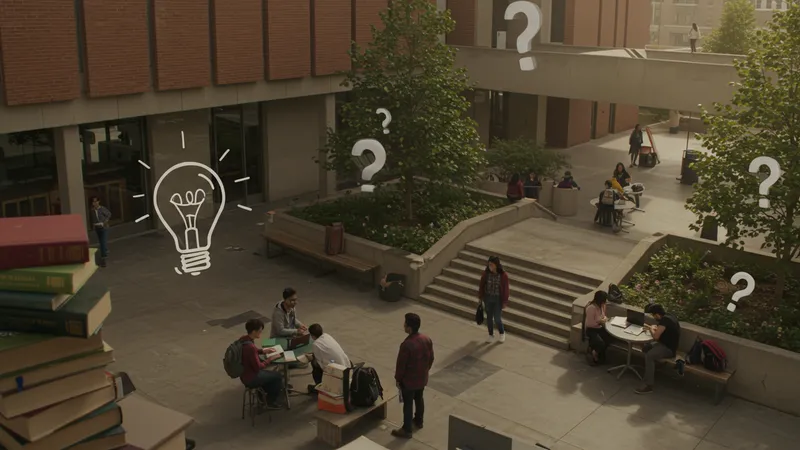
Some of the most controversial and groundbreaking research comes from private universities because they are less bound by state regulations. This independence sparks creativity and innovation, attracting top-tier talent. Imagine a world where research isn't restricted, but what happens when ideology influences the curriculum?
Private universities encourage students to think critically without political constraints. Yet, this open landscape attracts both positive discussions and ethical debates. Does this environment truly prepare students for the ‘real world’? What you read next might change how you see this forever.
Alumni networks from these institutions also play an underappreciated role. Vast, influential networks open doors to opportunities that impact entire career paths. But do these networks help level the playing field or create more elitism? The implications might surprise you.
Ever wondered if the high cost of private universities is justified? Tuition fees send most people running for the hills, but the real value might lie beyond the sticker shock. These institutions often offer generous financial aid packages, making education accessible to broader demographics. However, is it enough?

The cost-benefit analysis changes dramatically when you factor in the eventual return on investment. Data shows that graduates from private universities often earn higher starting salaries compared to their public school counterparts. Could this upfront investment actually pay for itself over a lifetime?
While student debt is a worrying prospect, it’s noteworthy that private universities often have higher rates of financial support and scholarships than public universities. This financial cushioning alters the educational landscape significantly—but is it the relief we’ve been led to believe?
What about the institution's reputation? Sometimes the name alone, such as Princeton or Columbia, provides intangible benefits that ripple through a person’s career. But prestige isn’t just a word; is it a ticket to an elite circle or an opportunity for extraordinary growth? Stay with us to delve deeper.
Private universities are often at the forefront of innovative educational programs. From liberal arts colleges to specialized engineering schools, niche programs cater to diverse interests, fueling specialized career paths. Could this specialization be the untapped resource we've overlooked?
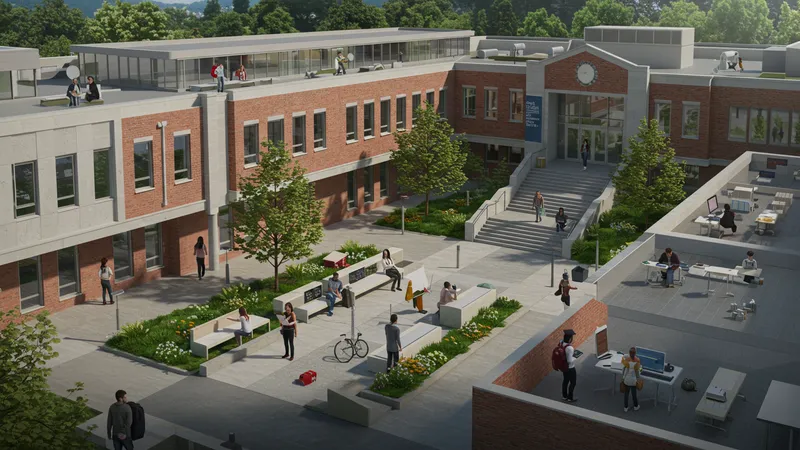
Interdisciplinary courses have exploded in popularity, with private universities often leading the charge. These programs integrate multiple subjects for a well-rounded education, creating a new kind of renaissance graduate. But is this multi-dimensional approach truly effective or just a trend?
Private institutions are free to design unique study-abroad programs and research opportunities, giving students international exposure. This global perspective often translates into brighter career prospects. However, is it the magic bullet we all hope for, or is something being glossed over?
Ultimately, these tailored opportunities could redefine success in education. As you read about the next feature, prepare for a revelation that could impact how education is consumed and delivered globally. The next chapter uncovers more mysteries.
The allure of private universities often lies in the powerhouse faculty they attract. The experts not only teach but also mentor, shaping students' futures directly. It's a major drawcard for aspiring academics and professionals. Are you prepared to find out how much influence professors really have?
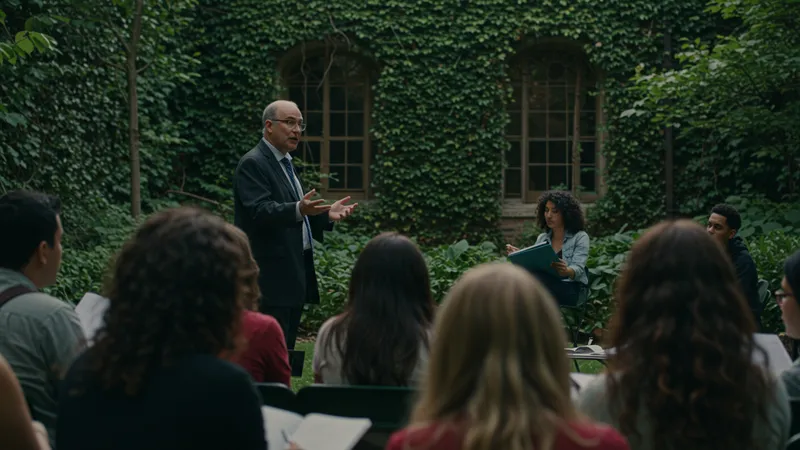
These institutions often have the budget and freedom to recruit notable professionals and emerging thinkers worldwide. This approach enriches the educational experience, offering diverse perspectives that broaden students' horizons. How does this faculty dynamic shift the educational paradigm as a whole?
The faculty at private universities often collaborate with industries for practical, real-world projects, enhancing students' work readiness. Such partnerships are a win-win but come with strings attached. What’s the hidden cost of this collaboration?
The ripple effects of faculty impact go beyond academic life, influencing career choices and industry trends. But is all this personalized guidance truly beneficial? Could there be a downside to having a roadmap so clearly outlined for you? Discover more in the following pages.
It's no secret that alumni networks can open doors that traditional job searches simply can't. In private universities, this network is amplified, offering life-long benefits. Guess what's surprising everyone? It’s not just about connections.

The level of access to professionals from all walks of life isn't just a career booster; it fosters unexpected collaborations that change industries. Alumni are leaders in their fields, frequently returning to mentor students. This often creates a cycle of growth—sometimes too close for comfort?
Graduates often credit their first job placements to connections made through their university networks. But is it just networking, or is it nepotism in disguise? The ethical lines blur when these relationships tip the scales in competitive job markets.
As you continue reading, ponder how alumni influences compound over time. It's a hidden currency in many industries, shaping futures before students even graduate. This network isn't just about jobs; it touches every facet of life, as you'll soon see.
The campus culture in private universities goes far beyond academic learning; it's a microcosm of society that emphasizes holistic development. This immersive experience can dramatically shape one’s personal growth and worldview. Curious about what really sets it apart?
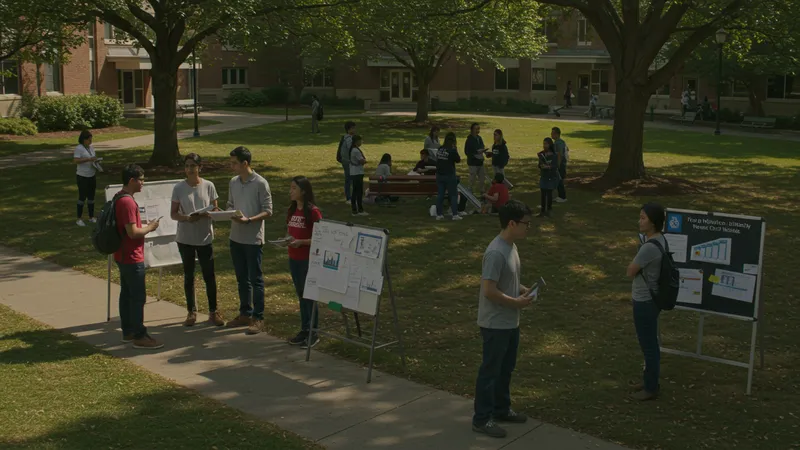
From leadership programs to volunteer work, private universities cultivate a "complete" student profile that includes social responsibility. But could this emphasis on extracurriculars dilute academic focus? There’s much more to unravel here than meets the eye.
Campus activities often reflect real-world scenarios, providing a testing ground for ideas and innovations. The societies and clubs create an environment rich in diversity, but is this overemphasizing “being well-rounded” rather than expertise? The truth is more complex.
The real story might lie in how this robust environment empowers students to tackle real-world challenges post-graduation. A change of perspective awaits as you read on—the layers of campus culture are about to be peeled back.
Private universities are ahead of the curve when it comes to integrating technology into education. Imagine classrooms where AI tutors personalize learning experiences. Surprised? This advancement could rewrite educational norms as we know it.

With resources to invest in the latest technologies, these institutions can rapidly adopt and test innovations. This results in an agile learning environment that adapts to the evolving educational landscape. But is the pace of change leaving some students behind?
Online courses developed by private universities often set standards for others to follow, making education more accessible globally. But could this virtual shift compromise the quality of education? Is technology integration a substitute for face-to-face mentorship?
The future of learning is inextricably linked with technological advancements, and private universities are the incubators. Prepare to venture deeper into the implications of this technological leap and its potential challenges.
Private universities are increasingly focusing on diversity, not just in student body but in curriculum and faculty as well. This shift brings richer discussions and varied perspectives that enhance the educational experience. Here's why it's more significant than it seems.
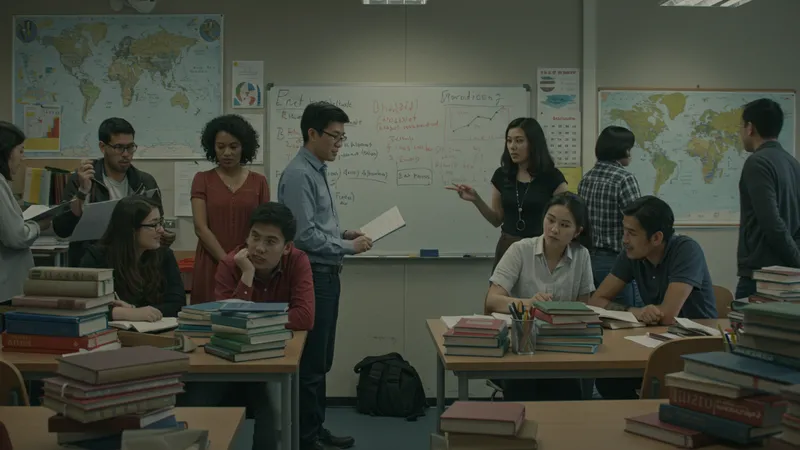
The recruitment of diverse staff enriches academic debates, broadening the horizons for students. But can diversity truly bridge the gap between intention and implementation? What happens when ideals clash with reality?
Diversity initiatives can often reveal uncomfortable truths as institutions strive to create inclusive environments. While celebrating plurality, are we prepared to address the friction it might cause within campus communities?
Continued commitments to diversity reshape how education is consumed and delivered, offering a compelling case for its importance. Explore how this transformative experience is both challenging and rewarding as you read further.
Private universities often pride themselves on providing a supportive environment, yet they face unique challenges regarding student well-being. With increased pressures, the mental health of students requires urgent attention. The insights will astonish you.

With access to superior resources, these institutions can offer advanced mental health services. But can therapy alone counteract academic pressure? The debate is as nuanced as it is important.
Despite high expectations, a proliferation of wellness programs seeks to construct supportive student environments. However, is this proactive approach truly addressing the root concerns, or just plastering over deeper issues?
As we continue exploring, unravel how these psychological investments have a long-lasting influence, both within the institution and beyond. The truth lies in the balance of support structures in uncertain times.
The involvement of families in the journey of private university students often goes unnoticed. Behind-the-scenes support can either motivate or burden, creating complex dynamics beyond the classroom walls. Here’s a look at what you might not know.

Families often have high stakes in students’ educational journeys, impacting decision-making processes. Does this influence pressure students or empower them to soar? The answer is more layered than you’d expect.
Parental expectations can drive students to excel, but they can also lead to stress and burnout. The question is, how do students negotiate family aspirations with personal ambitions?
Family support can be a game-changer, offering an emotional and financial anchor. Yet, how much of this guidance helps students thrive independently? The multifaceted push and pull continue in the unfolding chapters.
Financial aid at private universities is often a lifeline, yet its nuances are lesser known. Beyond scholarships and grants, these aids carry implications that can deeply affect students’ educational paths. Curious about what’s below the surface?
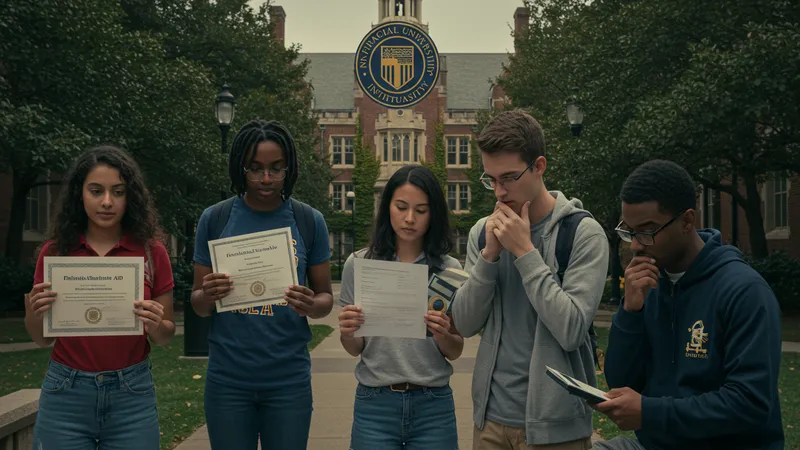
Generous packages often alleviate the burden of high tuition costs, but the process isn’t always straightforward. How do policies and conditions shape the actual relief felt by students?
The balancing act of accepting aid comes with strings attached, like academic performance requirements that can impose additional stress. Is this framework advantageous for students or a delicate tightrope walk?
As you read on, discover how these financial aid narratives extend far beyond immediate relief, affecting long-term career choices and financial independence. The complexities challenge what we know about funding education.
For many, choosing a private university is synonymous with prestige, an allure that often overshadows pragmatic concerns. But beneath the surface, the glamor has its nuances. Get ready to unearth a discussion most avoid.

The weight of a prestigious name on a degree can open doors and confer status, but what happens when reputation isn’t enough? The focus on prestige sometimes skews genuine understanding of personal fit and growth.
The implications of attending a renowned institution often bring with them a competitive atmosphere that can detract from the educational experience. Are students really prepared for the realities of living up to a name?
Continue to peel back layers as we delve deeper into prestige's tangled web, challenging what we believe about its true value. The debate extends into professional realms, waiting to be unpacked.
Private universities are increasingly committing to sustainability initiatives. However, these green efforts conceal underlying complexities and challenges. Here’s what most people miss when they applaud these changes.

Sustainability ranges from infrastructure to curriculum integration, painting a multifaceted picture. But genuine commitment requires more than eco-friendly buildings, doesn’t it? The crucial perspectives are less visible.
Rhetoric around sustainability doesn’t always match action, leading to potential discrepancies. How can stakeholders measure sincerity versus greenwashing in these institutions?
The broader impact of these endeavors questions the role education plays in global environmental strategies. Read on for an exploration of the implications that students, faculty, and society face in this evolving landscape.
As the landscape of higher education shifts, private universities stand at a crossroads. Will they evolve or instigate a revolution that redefines learning? Grasp the pivotal moment now unfolding.

Adapting to changing societal needs, these institutions are poised to disrupt traditional educational models. The stakes are high, but can they stay ahead of the curve in a digital age?
Their agility in adopting technological advancements and rethinking pedagogy might spearhead transformative change. Yet, as they innovate, questions arise about balance: tradition versus innovation. Can they find equilibrium?
In concluding our exploration, ponder the trajectory these universities might take, and what that means for future generations. A resolution awaits—brace yourself for the full circle revelation looming ahead.
As we've journeyed through the various facets of private universities, we've uncovered a complex ecosystem where innovation meets tradition, and prestige intersects with practical concerns. The takeaway? These institutions embody both opportunities and challenges that extend far beyond education. They are crucibles for change, persistently evolving to meet the demands of our ever-shifting world. But the real question remains: will YOU be part of this transformation? Share this article, bookmark it, and become an active participant in shaping the education narrative of tomorrow. The choice, the impact—it’s all yours.